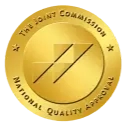
According to the National Comorbidity Survey Replication, an estimated 4.4% of people will experience Bipolar Disorder at some point in their lives. Approximately 60% of people suffering from BPD have a history of substance abuse. Living with both a mental illness and a substance use disorder is referred to as a dual diagnosis or a co-occurring disorder.
According to the National Institute on Alcohol Abuse and Alcoholism, Bipolar Disorder and alcoholism co-occur more often than even alcoholism and unipolar depression.
What is BPD?
Bipolar Disorder (or manic depressive illness) is characterized by severe mood swings or “episodes” of intense highs and lows, affecting concentration and energy. These shifts are more severe than the normal ups and downs that people without Bipolar Disorder experience. Due to the intensity of these mood swings, people with Bipolar Disorder often struggle with financial trouble, difficulties in relationships, addiction, and thoughts of suicide.
Episodes
The intense mood swings characteristic of Bipolar Disorder are called episodes and are classified in four categories. On average, episodes occur at least twice a year, with a duration varying from person to person, ranging from hourly, daily, weekly, or monthly shifts. The four types of episodes are Mania, Hypomania, Major Depressive, and Mixed.
MANIA
Mania is defined by euphoria or hostility lasting at least one week or more, with severe symptoms causing difficulty and impairment to daily life. This type of episode can last from a few days to several months. People experiencing manic episodes show symptoms like:
- Hyperactivity and increased energy
- Inflated sense of self-confidence
- Decreased need for sleep
- Fast, loud, and excessive speech
- Easily agitated or irritable
- Racing thoughts
- Short attention span
- Overly occupied with specific tasks
- Risky behavior (overspending, reckless sex, substance use, etc)
HYPOMANIA
The symptoms of a hypomanic episode are similar to those of a manic episode but much shorter and less severe. This means that they do not drastically affect daily social tasks or work.
- Inflated self-esteem or grandiosity
- Decreased need for sleep (e.g., feels rested after only 3 hours of sleep)
- More talkative than usual or pressure to keep talking
- Flight of ideas or subjective experience that thoughts are racing
- Poor attention and easily distracted (e.g., attention too easily drawn to unimportant or irrelevant external stimuli)
- Increase in goal-directed activity (either socially, at work or school, or sexually) or psychomotor agitation
- Excessive involvement in pleasurable activities that have a high potential for painful consequences (unrestrained buying sprees, reckless sexual practices, impulsive financial decisions)
DEPRESSIVE
A major depressive episode leaves a person detached, uninterested in their typically enjoyable activities, or depressed for at least 2 weeks. These episodes occur after a manic episode and can happen every few weeks or months for some. Symptoms present themselves as:
- Extreme sadness, worry, and guilt
- Feelings of emptiness, hopelessness, or worthlessness
- Decrease in energy and activity levels
- Trouble with sleeping (they may sleep too little or too much)
- Feeling tired or “slowed down” -Restlessness, fatigue, or insomnia
- Feeling they cannot enjoy anything
- Lack of interest or motivation
- Trouble concentrating
- Forgetful and poor memory formation
- Poor eating (too much or too little)
- Weight fluctuation
- Thoughts of death or suicide
MIXED EPISODES
These episodes are mostly what the name reflects. The person displays a presence of high and low symptoms at the same time or within an episode of mania or depression. Moods alternate between elevated and depressed over time in most forms. A person with mixed features goes through symptoms of both mood “poles” in rapid sequence or at the same time.
TYPES OF BIPOLAR DISORDER
The two most common types of Bipolar are Bipolar 1 and Bipolar 2. The main differences lie in severity: A person with BPD 1 will experience a severe manic episode that can often lead to hospitalization, and may or may not experience a severe depressive episode. A person with BPD 2 will experience less severe hypomanic episodes and will experience a major depressive episode. Dr. Patrick McKeon explains that Bipolar Disorder inhibits the ability to clearly recollect the past or see towards the future. This can explain why people with Bipolar Disorder are less prone to learning from mistakes, making it difficult to perceive the repercussions of future actions.
These two symptoms of BPD make a person extremely prone to impulsive and dangerous risk-taking. In short, despite having a bad experience with alcohol and substance abuse, they may fail to weigh the consequences. When living in the “right here, right now”— highs are experienced in extremes, as are lows.
What Causes BPD?
Bipolar Disorder is the result of hormonal and chemical imbalances in the brain. However, there is no clear cause for Bipolar Disorder. Genetic predisposition has some correlation. Family members of those with BPD have a 5-10% risk of also having it. However, simply being at higher risk does not mean it will be developed. Most scientists believe certain environmental factors like stress, trauma, and substance abuse are necessary to trigger symptoms in people with Bipolar Disease.
Understanding these triggers—and avoiding them—can minimize symptoms and limit the number of cycles a person will go through. Types of triggers include:
- Poor health (i.e poor sleep habits, lack of exercise, hormonal changes like pregnancy/menstruation)
- Toxic relationships and altercations with loved ones
- Alcohol and drug misuse -OTC medications (i.e. antidepressants/stimulants)
- Drastic life changes (grief, loss, a new responsibility, falling in love, vacations, seasonal change)
The link between Bipolar Disorder and Alcohol Use Disorder
If you find yourself thinking that Bipolar Disorder and Alcohol Use Disorders are eerily similar, you are right. 
People with Bipolar Disorder have lowered impulse control due to their memory and decision-making impairments. Their attempts to lower inhibitions can be taken to extremes. Alcohol is used to lower inhibitions and leads to poor decision-making. The end result is, more often than not, reckless behavior. The consistency in behavior leaves little room for differentiation. People who suffer from BPD are prone to turn to drugs and alcohol as a form of self-medication.
The abuse of alcohol and subsequent tolerance built, can lead to dependency and affect the brain’s dopamine production. People with Bipolar already struggling with an imbalance of dopamine levels have a much higher risk of dependency. Both disorders drastically interfere with vital body functions like stress response, mood regulation, sleep, appetite, metabolism, and emotions. It’s a battle to balance episodic mood swings. It is a chicken-or-egg dilemma, an emotional see-saw.
People often use depressants to alleviate symptoms during a manic episode. Depressants can trigger depressive episodes and worsen symptoms. People often use stimulants in hopes of recovering from depression. However, stimulants can trigger manic episodes and worsen symptoms. Both attempts to self-medicate and relieve symptoms end up making the problems much worse. Managing Bipolar Disorder is dependent on efforts toward mood stability.
“It’s pretty simple. If you want to live well with bipolar disorder, then drugs and alcohol don’t factor into the equation.” – Russ Federman, Ph.D., A.B.P.P., Director of Counseling and Psychological Services at UVA/co-author of Facing Bipolar.
Treatment
If you have both conditions, which condition appears first can play a vital role in recovery. A diagnosis of Alcohol Use Disorder may yield a faster recovery than the first diagnosis of Bipolar Disorder. However, people who receive a diagnosis of Bipolar Disorder first are more likely to struggle with the symptoms of AUD. Alcohol Use Disorder and Bipolar Disorder were historically diagnosed and treated as separate conditions, but today more integrated approaches are being used.
Relapse is common when treating one disorder and not the other. While one may be improving, symptoms of the other may trigger the return of the treated disorder. It is almost always better to treat both disorders simultaneously. Co-occurring disorder treatments are becoming more prominent. Instead of two separate treatments for the two disorders in two separate facilities, now often both can be treated together. At Atlanta Detox Center, we understand the importance of addressing co-occurring disorders, and the long-term benefits of treating both. We offer premier treatment in medically assisted detox from alcohol, prescription drugs, heroin, opioids, and crystal meth.
Integrated treatment programs for co-occurring disorders include services like:
- Collaborative treatment teams of medical professionals, psychologists, addiction counselors, nutritionists, and other professionals trained in dual diagnosis care
- Personalized psychotherapy focused on stress and emotional management to minimize the risk of substance abuse or relapse
- Carefully considered psychiatric medication as needed to manage bipolar disorder
- Group therapy and support with others battling mood disorders and/or addiction
- Disorder education and self-management techniques
- Cognitive-behavioral therapy, and other forms of psychotherapy
- Alternative and complementary health practices such as meditation
Therapy is key
Until you receive comprehensive care for both conditions, the chances of relapse are extremely high. It’s simply not enough to treat Bipolar Disorder without addressing the problem of alcohol addiction, and vice versa. At our Atlanta facilities, we are highly skilled and experienced at treating co-occurring mental health and substance abuse disorders. Our co-occurring disorders treatment will provide the tools and support needed for those who are stuck in the vicious cycle of treatment and relapse. If you’d like to learn more about our programs, contact us today at 844-658-0927.







